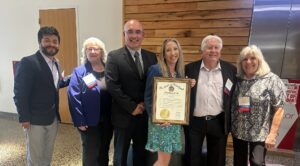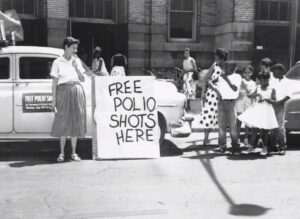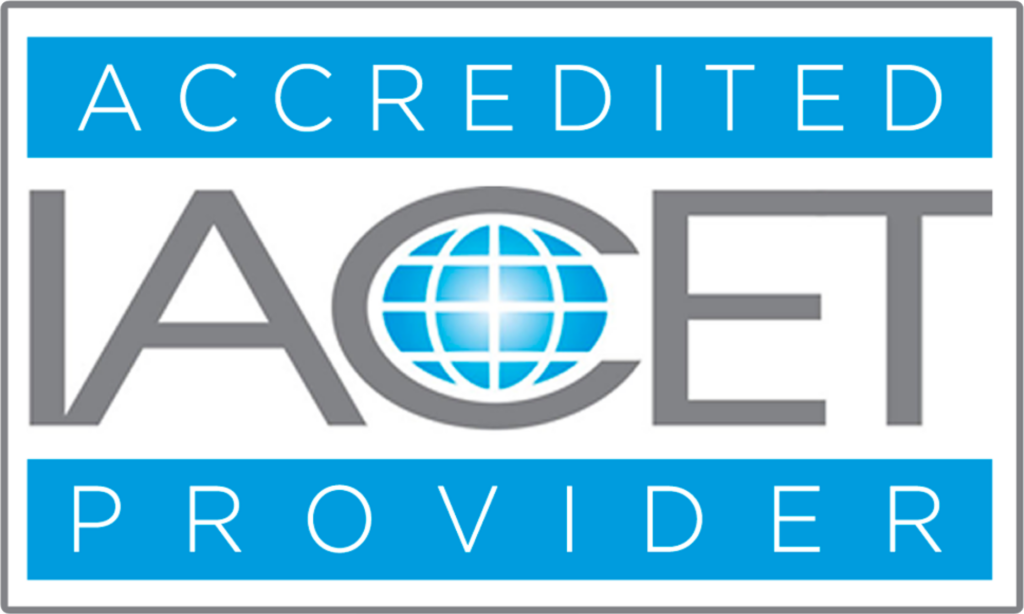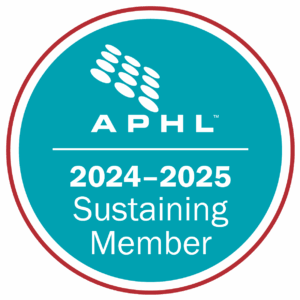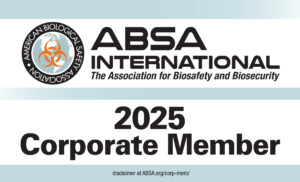
Biosafety and Biosecurity Professional Development Courses
September 7, 2023
Advancements in biocontainment and biosecurity have emerged as biodefense research rapidly expands. In the past two decades, the global density of biocontainment laboratories has increased and in turn, advancements in laboratory design and methods have materialized. There are approximately 1,500 high-containment laboratories in the U.S. These laboratories are designed for working safely with the most highly pathogenic agents. To support this vital research, it is critical to identify and train qualified individuals who can ensure the continued availability and safe operation of these facilities.
Biosafety professionals train specifically to support high-containment (BSL-3, ABSL-3), and maximum-containment (BSL-4) research environments by acquiring knowledge and skills necessary to meet the scientific, regulatory, biocontainment, biosafety, engineering, communications, management, and public relations challenges associated with the conduct of research in these facilities. Biosafety professionals should demonstrate proficiency in the areas of risk assessment, biosafety program management, engineering and facilities design, operations, and management.
It is vital to preparedness against threats to public health, both in this nation and globally, that research organizations offer effective continuing professional development. World BioHazTec has designed professional development courses to advance biosafety professionals’ knowledge and strengthen organizations’ safety and health posture. Our courses include:
- Biosafety Principles, Biological Select Agents and Toxins, Aerosol Hazards in the Laboratory
- Decontamination and Sterilization, Biosafety Cabinets and Autoclaves
- Risk Assessment, Working with Institutional Biosafety Committees (IBCs)
- Engineering for the Biosafety Professional Part I
- Engineering for the Biosafety Professional Part II
IACET CEUs
World BioHazTec is an Accredited Provider (AP) of the International Association for Continuing Education and Training (IACET). IACET is the only standards-developing organization (SDO) approved by the American National Standards Institutes (ANSI). IACET’s mission is “to advance the global workforce by providing the standard framework for quality learning and development through accreditation.” Recognition as an AP is verification that the provider’s training program has been thoroughly reviewed and meets the highest standards for excellence in continuing education and training for adult learners.
World BioHazTec chose the rigorous path toward accreditation to ensure it provides the highest quality training consistently and is reliable. Training requests are evaluated with our clients to ensure that they meet the organizations’ goals and measurements of success. IACET CEUs are also accepted by numerous professional organizations as evidence of the learner’s continued competence.
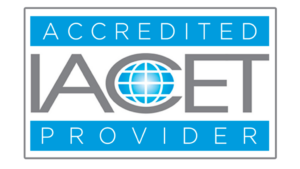
As an IACET Accredited Provider, Council Rock Consulting dba World BioHazTec offers IACET CEUs for its learning events that comply with the ANSI/IACET Continuing Education and Training Standard.
Biosafety Principles, Select Agents and Toxins, Aerosol Hazards
The success of research in biological laboratories requires knowledge and implementation of biosafety principles, awareness of potential hazards, and mitigation of those hazards. World BioHazTec offers this principles course to those new to biological laboratories. Instructors will cover resources and regulations, best practices for work in a biological laboratory, identifying the characteristics of work at different biosafety levels, potential risks, and prevention of laboratory-acquired infections.
This course is also an overview of the history and purpose of the Federal Select Agent Program (FSAP), locating and interpreting regulations and associated guidance documents, and the importance of inactivating Biological Select Agents and Toxins (BSATs).
Almost every activity in the laboratory has the potential to produce aerosols. Minimizing the creation of aerosols and protection against transmission to laboratory workers, outside the laboratory, and the environment is required to maintain containment. Participants will review the nature of aerosols, how they are created in the laboratory, and mitigation of potential hazards.
World BioHazTec subject matter experts and instructors are leaders in the biosafety community with a combined 100 years of experience. They include High- and Maximum-Containment Engineers, Biosafety Officers, and Employee Health and Safety Directors specializing in biosafety and biosecurity. We are an Accredited Provider (AP) of the International Association for Continuing Education and Training (IACET). As an IACET Accredited Provider, World BioHazTec offers IACET CEUs for its learning events that comply with the ANSI/IACET Continuing Education and Training Information.
Contact World BioHazTec (WBHT) to schedule a free 30-minute consultation or send us an email to learn more about our courses.
Decontamination and Sterilization; Autoclaves; Biosafety Cabinets
Safe work practices protect laboratory workers, research, and the environment from potential hazards associated with biological, biomedical, and clinical research. World BioHazTec encourages safety through training and education so that laboratory workers will be confident to perform their work, and also to observe and mitigate potential risks.
Decontamination and sterilization are commonly mistaken to be the same. This course will cover the differences and proper methods to achieve efficacy and render laboratory equipment safe to use. This course will also discuss the varieties of autoclaves used for sterilization and the level of containment provided through each design.
Biological safety cabinets (BSCs) are a prime example of engineering controls in the laboratory that are designed to protect workers, the product, and the environment. While BSCs are used throughout the world, there are some variations that could compromise safety during operations. Therefore, this course will review the different types of BSCs, how they function, and correct use.
World BioHazTec subject matter experts and instructors are leaders in the biosafety community with a combined 100 years of experience. They include High- and Maximum-Containment Engineers, Biosafety Officers, and Employee Health and Safety Directors specializing in biosafety and biosecurity. We are an Accredited Provider (AP) of the International Association for Continuing Education and Training (IACET). As an IACET Accredited Provider, World BioHazTec offers IACET CEUs for its learning events that comply with the ANSI/IACET Continuing Education and Training Information.
Contact World BioHazTec (WBHT) to schedule a free 30-minute consultation or send us an email to learn more about our courses.
Risk Assessments and Working with Institutional Biosafety Committees
World BioHazTec encourages safety through training and education to mitigate potential risks of biological and biomedical research. Biological risk assessment is the process of characterizing risks of potential pathogens or toxins to determine the likelihood and consequences of an adverse event to support decision-making regarding acceptability and mitigation. Proper risk assessment includes both biosafety and biosecurity. It is the requirement of the Institutional Biosafety Committee (IBC) to review risk assessments and to determine on behalf of the organization acceptance or rejection of potential risk and steps to mitigate any potential risk.
This course covers the basis for risk assessment, types of risk assessments, and factors to be considered. Also covered are mitigation factors and bases for decision-making.
Highlights:
- Biosafety guidelines for conducting safe laboratory operations, including Dual Use Research of Concern (DURC).
- Importance and benefits of risk assessments.
- Process for conducting a risk assessment and available risk mitigation strategies.
- Roles and responsibilities.
- Elements of a Biosecurity Program.
- Risk response strategies.
- Demonstrate a risk assessment review.
World BioHazTec subject matter experts and instructors are leaders in the biosafety community. They include High- and Maximum-Containment Engineers, Biosafety Officers, and Employee Health and Safety Directors specializing in biosafety and biosecurity. We are an Accredited Provider (AP) of the International Association for Continuing Education and Training (IACET). As an IACET Accredited Provider, World BioHazTec offers IACET CEUs for its learning events that comply with the ANSI/IACET Continuing Education and Training Information.
Contact World BioHazTec (WBHT) to schedule a free 30-minute consultation or send us an email to learn more about our courses.
Engineering for the Biosafety Professional, Part I
World BioHazTec encourages safety through training and education to mitigate potential risks of biological and biomedical research. Proactive researchers, administrators, biosafety professionals, and facilities personnel are required to be involved and knowledgeable in the operation, maintenance, verification and certification of their containment facilities and building systems. Frequently, they are called upon to participate in the planning, design, and validation of a new biocontainment laboratory or renovation of an existing facility. This course is intended to provide basic engineering principles that are useful in the planning, design, construction, maintenance and operation of a BSL-3 facility. The overall outcome of this course is that participants will have a foundation of engineering fundamentals, develop skills to ask questions in engineering terms, and will have the confidence to question the answers.
Highlights:
- BSL-3 laboratory design.
- Directional airflow and calculating cubic feet per minute.
- Directional airflow schemes using supply and exhaust.
- HVAC controls system and failure scenarios for testing and importance.
- Differential pressure testing and reading results.
- Laboratory certification and equipment.
- Quality assurance program.
World BioHazTec subject matter experts and instructors are leaders in the biosafety community. They include High- and Maximum-Containment Engineers, Biosafety Officers, and Employee Health and Safety Directors specializing in biosafety and biosecurity. We are an Accredited Provider (AP) of the International Association for Continuing Education and Training (IACET). As an IACET Accredited Provider, World BioHazTec offers IACET CEUs for its learning events that comply with the ANSI/IACET Continuing Education and Training Information.
Contact World BioHazTec (WBHT) to schedule a free 30-minute consultation or send us an email to learn more about our courses.
Engineering for the Biosafety Professional, Part II
World BioHazTec encourages safety through training and education to mitigate potential risks of biological and biomedical research. Proactive researchers, administrators, biosafety professionals, and facilities personnel are required to be involved and knowledgeable in the operation, maintenance, verification and certification of their containment facilities and building systems. Frequently, they are called upon to participate in the planning, design, and validation of a new biocontainment laboratory or renovation of an existing facility. This course is intended to provide intermediate engineering principles that are useful in the planning, design, construction, maintenance and operation of a BSL-3 or high-containment facility. The overall outcome of this course is that participants will have a foundation of engineering fundamentals, develop skills to ask questions in engineering terms and have the confidence to question the answers.
Highlights
- Identify architectural and engineering (A/E) plans and plan views.
- Identify barriers, barrier types, personnel flow, and pressure zones.
- Apply engineering assessment tool for A/E drawings.
- Calculate measurements using an architect’s scale.
- Identify barriers, barrier types, personnel flow, and pressure zones.
- Review and discuss design documents by the “Drawing Clues Method.”
- Evaluate engineering solutions.
- Discuss the difference between commissioning and certification.
- Identify and discuss the requirements of annual certification.
- Explain the purpose of failure scenarios during pressure testing and analyze pressure testing data.
World BioHazTec subject matter experts and instructors are leaders in the biosafety community. They include High- and Maximum-Containment Engineers, Biosafety Officers, and Employee Health and Safety Directors specializing in biosafety and biosecurity. We are an Accredited Provider (AP) of the International Association for Continuing Education and Training (IACET). As an IACET Accredited Provider, World BioHazTec offers IACET CEUs for its learning events that comply with the ANSI/IACET Continuing Education and Training Information.
Contact World BioHazTec (WBHT) to schedule a free 30-minute consultation or send us an email to learn more about our courses.

